Isle of the Dead (1945)
Directed by: Isle of the Dead
Written by: Ardel Wray, Josef Mischel, Val Lewton
Starring: Boris Karloff, Ellen Drew, Katherine Emery, Marc Cramer
USA
AVAILABE ON DVD AND DIGITAL
RUNNING TIME: 71 mins
REVIEWED BY: Dr Lenera
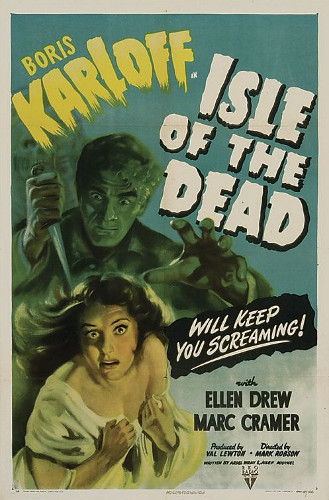
1912 during the Balkan Wars when Greece, Bulgaria, Serbia and Montenegro fought against the declining Ottoman Empire of Turkey. American war correspondent Oliver Davis accompanies the cruel Greek General Nicholas Pherides out to a small island as Pherides goes to visit the grave of his wife. However, they find the grave desecrated and the island infected with septicemic plague. The General orders the island quarantined and begins to believe that someone could be a vuvoloka, a native wolf spirit that walks the Earth in human form to drink human blood….
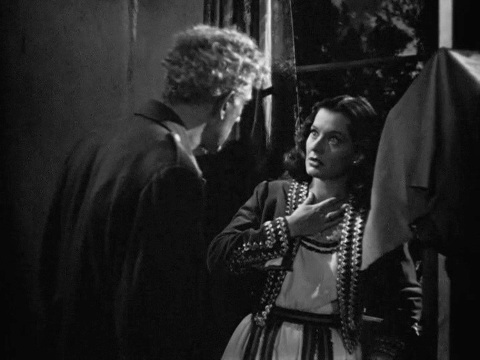
Even though Martin Scorsese included Isle Of The Dead in his list of the top eleven [why eleven?] scariest movies ever, the eighth entry in the Val Lewton-produced horror series seems to be the least appreciated and popular, which might be one reason why it’s the only one in my DVD set not to have an audio commentary. I even had some trouble finding good pictures from it to accompany this review and am still not satisfied with the ones I’ve used. I’m going to admit right now [and therefore hopefully get it out of the way] that, considering its subject matter, not to mention lines like “remember the general’s instructions about gathering in groups”, I found it a rather disconcerting watch considering what’s going to in the world at the moment; I’m okay with stuff like this if I know beforehand that it’s going to be in the movie, but was a bit taken aback by this one because I hadn’t done any reading up on it beforehand. However, I’m not going to let this influence my opinion of this one, which is certainly not of the caliber of the likes of I Walked With A Zombie and the two Cat People films but is still a rather unique and fascinating chiller in its own right. Perhaps one reason for its low ranking in the series is that it’s not really much of a horror movie at all in the first half even though the central Lewton theme of death is to the fore, and when it does properly become one it not only simplifies and makes explicit what was seemingly a very ambiguous tale but holds back on the Lewton trademarks more than any of the previous films. That’s not to say there aren’t some terrific chills though including one of the most frightening ‘buried alive’ scenes in the genre, while Boris Karloff gives his customary fine performance playing an interesting character.
Box office revenue from the series had been steadily declining, so after The Curse Of The Cat People was released to little success, RKO decided to hire Jack L. Gross, a distributor from Universal, to executive produce the rest of the films, and bring over Boris Karloff, still the biggest horror star of the time. Karloff had chosen not to renew his contract with Universal because he felt their films were getting too silly. Lewton was aghast at Karloff being forced upon him, largely because he didn’t think much of the films Karloff had been in of late, but then he was told that Karloff didn’t like the last few “horror” movies he had been in and loved the “terror” films that Lewton was doing, and the two subsequently hit it off. He later stated that Lewton was, “the man who rescued me from the living dead and restored, so to speak, my soul.” Lewton wanted to make an adaptation of Sheridan le Fanu’s Carmilla but couldn’t get it off the ground. Eventual inspiration was Arnold Boecklin’s painting ‘Isle Of The Dead’, and long-time editor Wise, and the person who’d taken over the Curse Of The Cat People when the original director fell behind, was finally promoted to director. Rose Hobart was cast as Thea, but after two weeks of shooting Karloff had to have a back operation and the production had to be shut down until he recovered. By the time he returned, she was already working on another film. In the time that Lewton was able to reassemble the rest of the cast, he and Karloff made The Body Snatcher which was released in the interim. When filming on Isle Of The Dead recommenced, Hobert was replaced by Ellen Drew, though Hobart said in a 1984 interview that she could still recognise herself in long shots. It only just about broke even at the box office, though The Body Snatcher had turned a fine profit so RKO weren’t too annoyed. It was re-released in 1953 on a double bill with Mighty Joe Young.
Opening narration tells us of the vuvoloka, a wolf spirit in human form that seems to combine characteristics of the vampire, the werewolf, and the zombie, and oddly links it with Aphrodite who was the ancient Greek goddess of love. Then shots of the painting are shown behind the credits before we find ourselves in the tent of General Nikolas Pherides, our first introduction to him being of his hands before we pan up to the face of Karloff, wearing a rather unconvincing wig it must be said. One of his generals has lost a battle, and Pherides, without saying a word, gives him his gun, and the other guy goes outside to shoot him. “A little harsh, isn’t it” asks Oliver Davis the American reporter present. “Do you think that I wanted to send him to his death? He was my friend” is the reply in a very well played moment by Karloff showing what a subtle actor he could be. The body has to be buried immediately because of this plague that’s around, then the two visit this nearby island to pay their respects to the General’s long-dead wife to whom he was actually very nice to, a fact that perhaps surprises us considering what we’ve seen of him so far. The cemetery is guarded by a statue of Cerberus the three-headed dog, the Greek mythological guardian of the Underworld. There, they discover the crypt despoiled and hear a woman singing on the supposedly uninhabited island, then set out to find her. Although there didn’t seem to be the creepy atmosphere that there ought to be in this scene, I did find said singing a little eerie even if it was probably an innocuous song, so the film must have been working a bit by this point even if I wasn’t too aware of it.
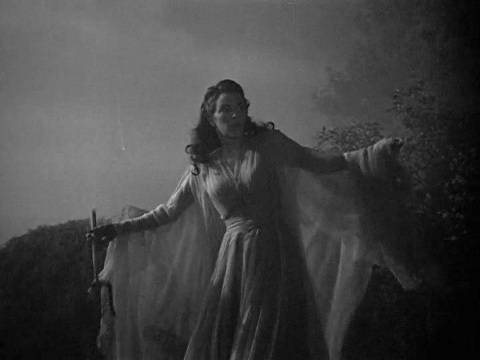
In a bar they find retired Swiss archeologist Dr. Aubrecht, his Greek housekeeper Madame Kyra, British diplomat Mr. St. Aubyn, his pale and sickly wife Mary, her youthful Greek companion Thea, and English tinsmith Andrew Robbins. Of course everyone speaks English and hardly anybody looks Greek let alone is played by one, but then it was 1945. We aren’t particularly convinced of the setting though; just compare it to the rich atmosphere of San Sebastian in I Walked With A Zombie which may not have felt authentic but which was certainly rich considering that it was a similarly studio-bound production. Aubrecht tells the two visitors that grave robbers have been taking valuable artifacts and apologises for his part in inspiring them to do this, Kyra whispers to Pherides that a vorvolaka, in the guise of Thea, is in their midst, Thea refuses to serve Pherides wine because of his tax collecting, and Robbins goes up to bed seemingly very drunk. It’s a shame that the terrific Skelton Knagg, whose character played such an important part in The Ghost Ship, has such a small role here as Robbins, but he still makes a strong impression. The two spend the night there; Pherides turning his bed into a simple army bunk because that’s what he’s used to is a nice touch. The next morning, Robbins is found dead in his bed, his supposed drunkenness actually being a symptom of having caught the plague [goodness this one is weird and difficult to write]. Anyway, Dr. Drossos is summoned, and he determines the cause to be septicemic plague and quarantines the island, but Aubrecht prefers Kyra’s explanation – that the gods sent the plague to punish them for harboring a vorvolaka, and decides to pray to the Greek deity Hermes instead.
All this is obviously very talky, though scenes are typically kept short and to the point as we are privy to the often strange interactions of the inhabitants of this island. One element is cut rather too short; I’m sure that I’m not alone in often finding the romance aspect one of the least interesting part of films such as this, but in this one it’s so rushed it feels like some material was despite Marc Cramer’s bland performance. One minute Oliver is suddenly saying to Thea that he’s glad he’s not leaving the island because she’s on it, then the two are going out for a midnight rendezvous. But then I guess it’s right that the focus should be on the two who are trying to solve all this, especially Pherides who becomes obsessed with the idea of this creature, perhaps as some form of redemption for his cruelty as a soldier. The identity of the vorvolaka actually came as a surprise to me; throughout much of the film we have it suggested again and again that Thea is the one which seems like less a red herring than the unfolding of a romantic tragedy rather like The Gorgon where a human and a monster fall in love even though we know that the relationship is doomed. But then it turns out to be somebody else. The murderous [not at all wolf-like] demon killing with a trident is somewhat at odds with the rest of the film which seemed to be suggesting a more psychological final arc to the tale, yet it’s undeniably good to have to some thrills at last seeing as neither the atmosphere nor the suspense is as strong with this one except in a few scattered moments. However, the plague is totally forgotten in the final quarter, confirming something that lodged in my brain much earlier though I hoped that the script would sort it out; the two sources of horror the plague and the vorvolaka are not really fused together. Even just having the superstition arise out of the plague rather than a different illness right at the start would have been a significant improvement.
Nonetheless the afore-mentioned buried alive scene is a real corker, with the camera slowly zooming into darkness as we hear the sounds of cries and banging on the coffin. This isn’t the only bit that made me wonder if Roger Corman was thinking of this film when he made his Edgar Allan Poe series. The killer’s face half glimpsed amidst black is also very effective and we see blood resulting from the first trident killing. However, the finale is a bit half-baked, as if they spent too long trying to work one out and had to male something up on the spot. Cinematographer Jack MacKenzie does a good job in his only Lewton replicating the visual style of the others, though it’s not quite as present and sometimes he tends to use the usual pools of black in a more theatrical manner. However, there’s one great bit when Thea does a nighttime walk in of course a white gown down a corridor and a shadow on the left totally envelopes her; it shouldn’t make any sense but this is Val Lewton we’re talking about, where black is everywhere psychologically and metaphorically, and near the end we get another classic outdoor nocturnal Lewton walk, except that this time there are not one but two characters involved and we’re not even sure who is the attacker and who is prey. Composer Roy Webb was replaced by Leigh Harlin for this one; Harlin’s often moody musical backing is okay if undistinguished. Overall Isle Of The Dead doesn’t seem entirely thought through and lacks some of the resonance of the other Lewtons, though it has perhaps the strongest feeling of despair after The Seventh Victim and still definitely bears his stamp.
Rating: 











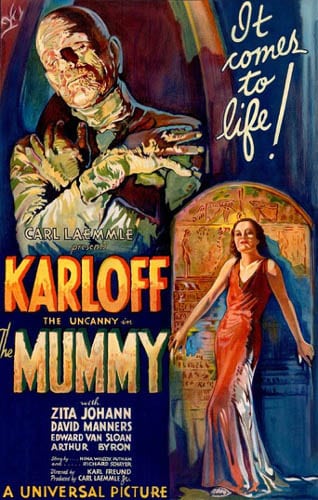
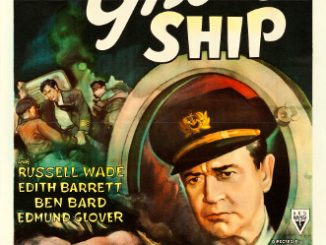
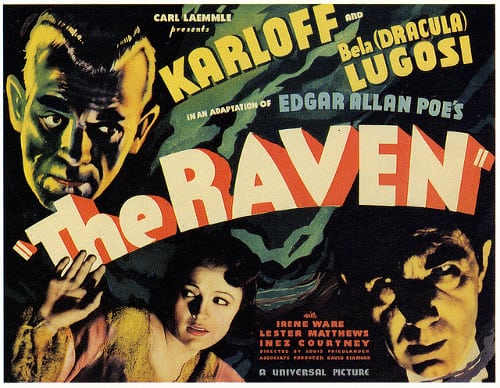
Be the first to comment